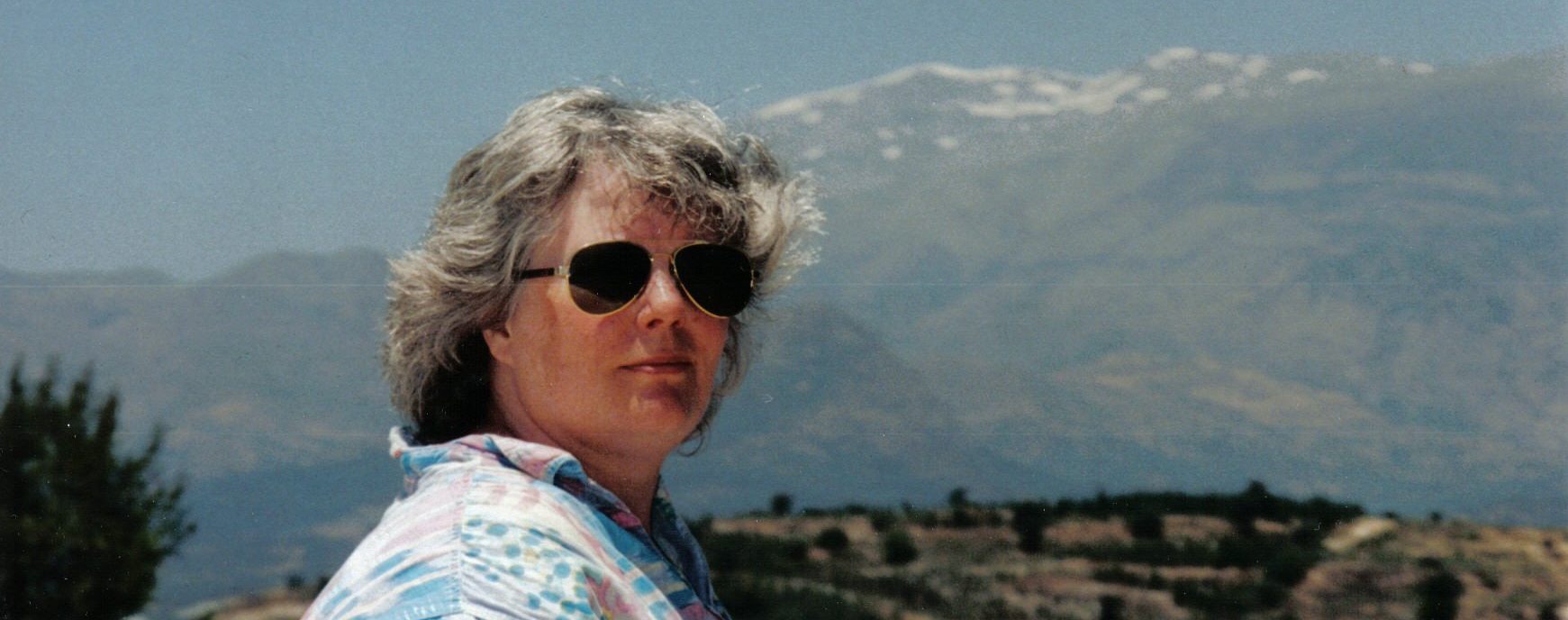First of all, she likes robot toys.
And she’s the wisest person I’ve ever met.
The two factors aren’t unrelated. Her stories, from “The Author of the Acacia Seeds and Other Extracts from the Journal of the Association of Therolinguistics,” to “Bunditsu: The Art of Cat Arranging” reflect her humor and her wisdom. She knows that the world can be funny as well as sad, pedestrian as well as magical, and that we’re connected to the humor and the magic as well as to the sadness and the pain.
While I was writing this introduction, I laughed out loud at the dedication to “Ether, OR” — “To the Narrative Americans.”
I smiled all the way through the solstice chant from “Winter Solstice Ritual for the Pacific Northwest”:
It is holy in the east.
It is holy in the north.
It is holy in the west.
It is holy in the south.
Up above it is holy.
Down below it is holy.
It is holy in the middle and around the outsides.
It is holy in all the crevices and little sticking-out bits.
It is holy in all the parts I have forgotten.
Between the toes and behind the ears it is holy.
Along the selvedges and hems and seams and gussets it is holy.
It is holy between 2:30 and 4 and even in prime time.
It is fairly generally and as a more or less continuous thing holy.
— and then I reread “Neko at twenty” and burst into tears:
Opaque and luminous gaze
fixed on longer than a cat can live…
I’ve been privileged to know Ursula for more than half my life. When I had known her for ten minutes, and though I knew she hadn’t taught fiction writing before, I begged her to teach at a workshop I was helping organize. Twenty-five years later, organizing another workshop, I spent the first ten minutes on the job asking her to teach at it.
(By the way, she said “Yes” both times, and she was wonderful both times. And at the workshops in between, she was fairly generally and as a more or less continuous thing, wonderful.)
She’s the best teacher I’ve ever seen: witty, generous, gentle, truthful. Though she has strong and unique ideas about fiction, rather than bully new writers into agreeing with her and mimicking her, she encourages them to blaze their own trails. The book she based on her workshop experience, Steering the Craft, has the subtitle, “Exercises and Discussions on Story Writing for the Lone Navigator or the Mutinous Crew.”
She is mutinous herself on occasion, and rather dangerous. She isn’t afraid to change her mind, and to admit to changing her mind, and to discuss changing her mind. I think she likes the way this adds a slightly chaotic wobble to the balance of her life… not to mention to the proclamations of critics.
Rather that trying to suppress her mutinous crews, she cherishes them. She introduces her students to new ways of looking at the world and at their fiction. She’s certainly done that for me, as well as introducing me to the magical Olympic rain forest, the severe and beautiful and utterly indifferent Oregon desert, and the Southwest. She introduced me to the music of Bruce Springsteen. She even introduced me to the New Mexico State Crustacean.
![]() (Have you noticed those? They’re overrunning the state.
(Have you noticed those? They’re overrunning the state.
They’ve made it to the Northwest, too — they’re about four feet high, three feet wide, bright orange with reflective stripes, and they line up in roadways. She and I ranged through Los Alamos taking pictures of them one afternoon, for a treatise on the Crustaceans’ natural history. I believe the inhabitants thought we were atom bomb spies. They might also have thought we were making free with the nitrous oxide, as we were laughing like loons every time we found a new Crustacean subspecies.)
She’s mutinous about her self-descriptions, as well. Mutinous and dangerously unpopular. She uses the F-word — Feminist — all the time. About herself. Despite some efforts in the literary mainstream to drag her out of the science fiction field — I think they think she is too good for us, and sometimes I think they might be right… but then again I think she’s too good for them, too — she always describes herself, first and foremost, as a science fiction writer.
She’s also not afraid to use the epithet “politically correct,” though to be sure she uses it in its original sense of respecting other peoples’ differing points of view.
Ursula’s life reflects her wisdom and her humor, just as her stories do. She once said to me, “One person can’t excel at two simultaneous careers, but two people can successfully share three.” She and her husband Charles share three careers: he is an historian, she a fiction writer, and they both are parents, of three wonderful and completely different adult children. The very first time I ever visited the Le Guins, I noticed that while Ursula and Charles were definitely the parents, and Elisabeth, Caroline, and Theo were the children, the parents always spoke to the children as fellow human beings. Ursula and Charles excel at three careers. Four, actually, now that they are grandparents.
I don’t know if you can count friendship as a career, but they are pretty darned good at that, too.
One last thing. Ursula isn’t perfect. And she wouldn’t even like it if I claimed she was. But this isn’t a roast, it’s a celebration. So I’m not going to tell you any ways she isn’t perfect. I’m only going to celebrate her, and to invite you to celebrate with me.
— Vonda N. McIntyre
Written for the presentation of the Bumbershoot Award to UKL.
